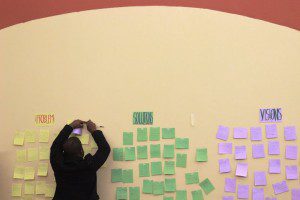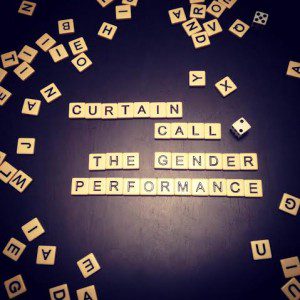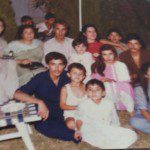By Aqsa Mahmud
Why are you doing this, someone asks, yet again.
This question naturally arises from a first-time listener on hearing about the Townhall Dialogue Series, an initiative I recently helped launched in Washington, D.C. The Series seeks to create a safe space for American Muslims to discuss social issues that impact our daily lives and religious practices. It is not a forum on Sharia, and we consciously avoid theological debate. Instead, the Series is based on the premise that each individual is validated through his or her personal experiences and, by sharing our stories, we build compassion and greater understanding of our diversity.
Three weeks ago we successfully hosted our second dialogue on the topic of gender entitled, “Curtain Call: The Gender Performance.” We encouraged participants to examine their past and share stories of how they learned about gender in a religious-social context. We then pushed the conversation to gender roles in our current personal relationships and environments. And, people shared their stories: sexual abuse morphing a person’s interactions with a particular gender; coming to terms with one’s homosexuality and re-defining traditional femininity; grappling with a partner’s request to be “more of a man,” which then launches a re-examination of interpersonal relationships; and the boxes of “male” and “female,” which becomes skewed when a person first meets someone who identifies with a non-binary gender.
Vulnerability is the critical element and, after each dialogue, participants walk away somewhat stupefied. Some hug me and say how amazed they are to have shared such intimate details about their personal lives with strangers. They are struck by how easy it is to trust others to withhold judgment, be compassionate and honor their secrets.
So why are you doing this, the person presses.
Because I am tired of the rhetoric that my religion requires perfection, vulnerability is hazardous, and my problems are somehow “non-Muslim.” I am a Millennial American Muslim who, like many others of my generation, has found that our mosques and formal religious spaces have been overtaken by a mentality that to air our issues would mark us flawed in our Muslim identity.
The emergence of the third space reflects the inability of the traditional mosque — its hierarchy and administration — to answer the needs of my generation of Muslims. We grew up familiar with the stories of the Prophet and his love for Khadijah, his first wife, who was significantly older and more financially secure than him. Yet when a young man professes to marry an older woman, he is discouraged by the leaders of his congregation, who envision a different model of “Muslim” masculinity. They warn him of her fading beauty and his inability to provide — emotionally or financially — for her needs.

The stories of the Prophet describe a man who exhibits both masculine and feminine traits — his leadership on the battlefield is coupled with affectionate gestures and emotions. Our current religious schools and communities, however, rarely promote this definition of “manhood.” We are constricted to binary categories and narrowed models of what it means to be Muslim male and female. If this is the mentality of the formal spaces of my community, then my thoughts and spirituality do not belong there.
The Dialogue Series is a third space providing the support for American Muslims grappling with issues that characterize the human experience. We are Muslims, and we have issues. We struggle with our personal dilemmas under the umbrellas of mental health, sexuality, classicism, racism and violence. The fact that I am a Muslim thereby makes my problem a “Muslim” experience. It requires a community response of support and understanding.
Yet, we live under the veil of subtlety and silence, fearful of being marked “flawed.” For the longest time, our community has adopted a mentality that admission will leave us prey to a wake of vultures composed of our peers, elders and teachers.
Ask me again why I’m doing this, and I will tell you that this is my act of worship through service. I am giving back to my community that which it is asking for: A formal space promising non-attribution and acceptance of the individual’s personal experiences as he or she struggles with societal pressures that naturally line the Muslim identity.
The organizers and I believe in this initiative and the purpose it serves. When I look around the table (or the multiple screen shots during a Google hangout), I see the next phase of the American Muslim community: We are lawyers, entrepreneurs, part-time waiters, full-time mediators, policymakers and profiled bloggers. We are single, married, in committed relationships and struggling through the nuances of interpersonal communication. Some of us were born Muslim and others are in the first decade of our Islam.
We are colored by South Asian history, Arab culture, mixed ethnicities and inter-faith backgrounds. We are sun-kissed Californians, Southern belles and Texan friendly and the real Jersey shore. We are the Millennial Generation’s American Muslims, and only recently have grown up to take our place in the religious paradigm.
Our time is beginning.
Aqsa Mahmud graduated from the University of Michigan Law School and currently resides in Washington, D.C. She is a co-organizer for the Townhall Dialogue Series (D.C.), a community initiative providing a non-judgmental space for American Muslims to address social issues affecting their daily practice. She has contributed pieces on religious-cultural topics for The Friday Times and The Express Tribune.













